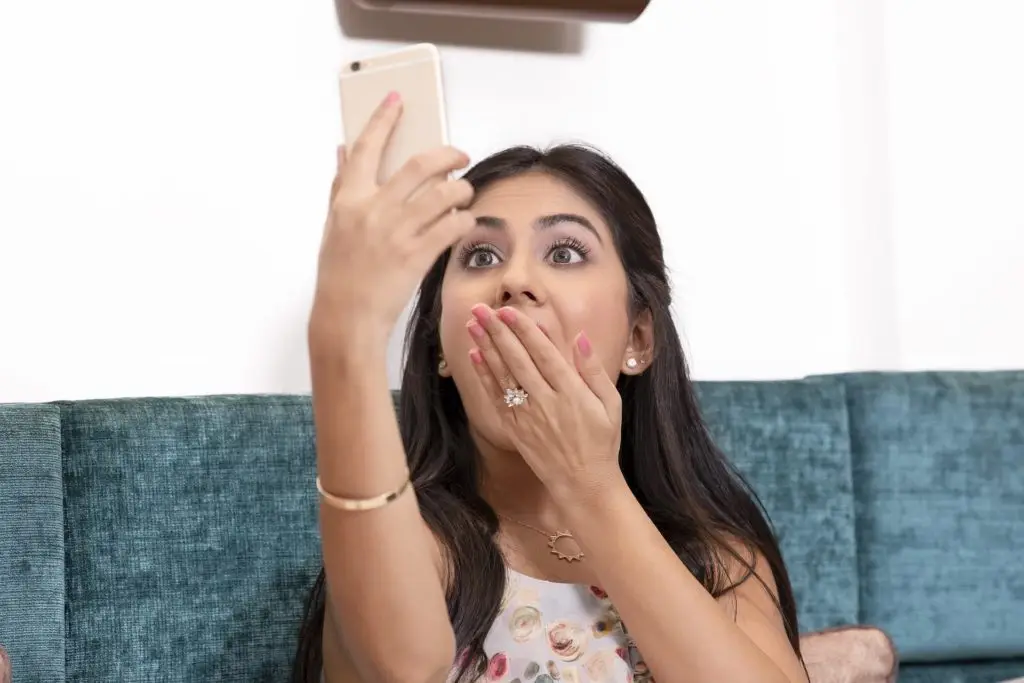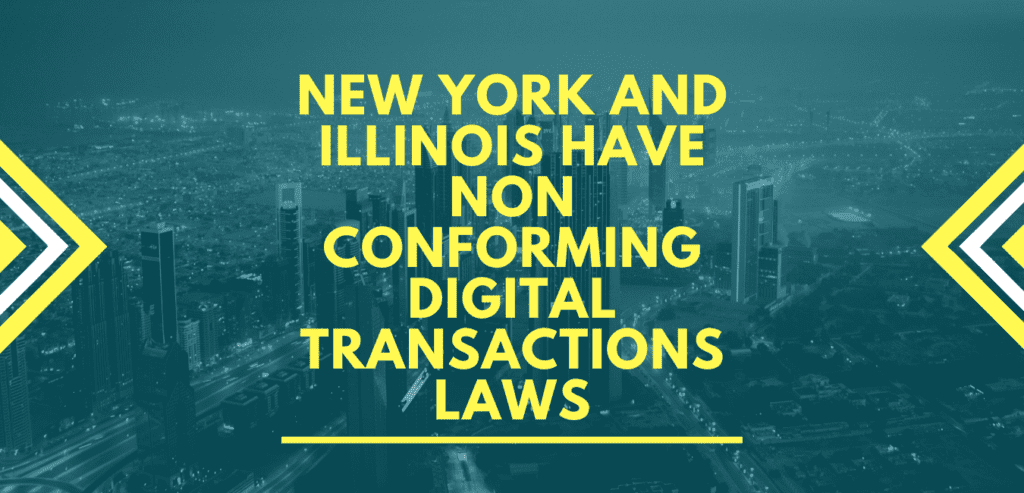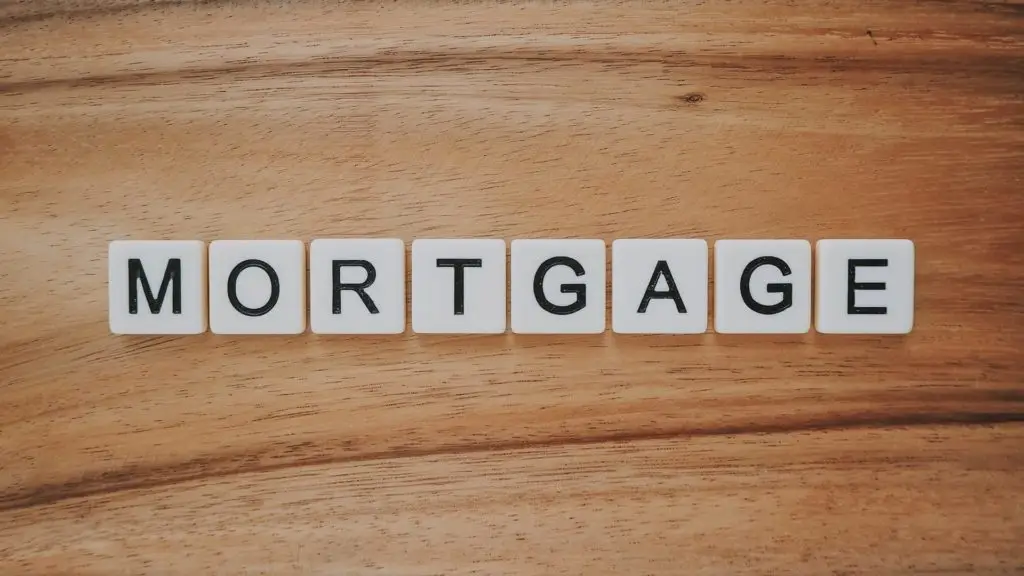Last week, my entire LinkedIn was buzzing about how to do a “contactless closing.” For many real estate closing attorneys, remote closings represent our best chance of staying normal in our markets. But, many Realtors are still confused about how to do remote real estate, remote open houses, and remote closings! In fact, just today I answered questions on if whether remote showings are happening in Illinois.

Table of Contents
Remote Showings & COVID Rules for Open Houses
The Real Estate market just celebrated 100 years of open houses! Now, while I know many Realtors love open houses for generating leads, particularly new buys, an equal number hate them!. But, since COVID-19 started, the only certain thing was that nobody was doing open houses. Many rules changed during this period, with both the State of Illinois and the National Association of Realtors taking strides to flatten the curve. With that said, remote showings are legal and safe. These include remote open houses and we would advise our Realtor partners to continue with remote activity for public safety concerns.
The new showing and open house safety guidelines from NAR look something like this:
- Keep tours of the home to less than ten people at any time
- Show the home to only one buyer group at a time.
- Maintain Six Feet of Social Distancing
- Require potential buyers to wash their hands and ask them to use hand sanitizer when the showing begins
- Ask everyone to either remove their shoes or cover their footwear with plastic booties.
- Make sure everyone is tolerant of adequate cleaning products (including the furnishings!)
- Tell your client to disinfect their home after the open house – especially commonly touched areas like doorknobs and faucet handles.
Questions that Realtors Should Answer During Remote Open Houses
I was browsing this amazing article about how Realtors should prepare for Remote Open Houses and I saw that it recommended Realtors to have three answers in mind. Now, I don’t think these are really great questions to ask a Realtor. In fact, Question 1 is actually a Fair Housing Violation waiting to happen. But, I do expect both buyers and Realtors will be asking these questions if a showing is cancelled due to COVID.
- What’s the neighborhood like? Is it safe and walkable? Are there kids in the area and is it in a good school zone? This question invites a type of prejudice that is absolutely not welcome in Chicago anymore. I think we can safely discuss whether a neighborhood is safe and walkable. I think we can also discuss whether there are good schools nearby in the Chicago Public Schools district. But, please, if you have an opinion about whether this is a good neighborhood or not, keep it to your damn self.
- Are the current owners living in the home? Is it move-in ready? This is a fabulous question that any Realtor should answer whether the showing is in person or remote. Knowing who is in the home is so important in order to assess its value. Is it even habitable? Does it need rehab? Is it already generating rental income? Realtors should prepare this one in advance if a contactless showing or contactless closing is in the future.
- Is the home in a flood zone? If so, what does the cost of flood insurance look like? Barely any of the City of Chicago is in a flood zone, but nearly all of DuPage and Kane County are. This is a great question that a Realtor should prepare for a remote showing. Further, I’ll need to know this information as a buyer’s attorney if we do a remote closing!
- Is there a Homeowner’s Association? You’ll want to know whether or not some association has rules that you’ll have to follow with your property. Maybe you’ll be maintaining fences, or paying dues. It can change the whole character of your new home and you won’t know until you see your contract.
After our team figures out whether the home is the right fit for the client, we now have to ask how we’re going to close it! Are we all going to gather in the same room and risk the virus? Is there any reason for everyone to gather besides the closing attorneys? Well, not so much anymore because Illinois just legalized remote closings…
Remote Closings
Recently, the American Land Title Association (ALTA) released this article that generated a ton of buzz on remote closings. ALTA believes that remote closings are necessary to progress during the COVID pandemic to stop unnecessary human interaction. Now, I read this article, and when I did I was confronted with one outrageous sentence:

So wait, they don’t know what to do in Illinois? Is there help for doing remote closings in Chicago? Then, I thought, what are those electronic transactions laws in Illinois? How do I provide great value as a real estate closing attorney in an era of remote closings? Really, this must be how to do real estate closings in the coronavirus era, and our clients will expect answers.
This might be our new normal for COVID investment. Therefore, I took the time to research remote closings in Illinois and how real estate closing attorneys can help. Surprisingly, I found that most of the laws on this subject are only a few weeks old. We’re in uncharted waters! So then, let’s try to figure out, together, how to meet and manage goals in a contactless closing in Chicago.
Is a Contactless Closing even Legal?
Remote closings became legal in Illinois in March 2020. Before the Stay at Home Orders, Illinois notaries could not certify your signature unless they were physically present with you. Since many of the closing documents require notary, this was a huge change! Now, in Illinois, a closing can be done so long as the notary can “see, hear, and communicate with the person by means of audio-video communication.” With that in mind, let’s look at what a real estate closing attorney expects from a remote notary in a contactless closing.

What do I sign at a Remote Closing?
When you complete a real estate closing in Illinois, remote or in-person, you are going to sign a dozen papers. They put probably 15 pens on the desk – all blue ink – because some wear out every single day. Although your real estate closing attorney will review each of these documents for you, we want to know whether these documents will work. At your real estate closing you will sign (and the notary certifies):
- Your full closing disclosure – The Buyer’s information on every cost she pays at closing and who that money goes to.
- A Certified Loan Application – The Buyer’s sworn statement that she didn’t lie to get a mortgage.
- The Mortgage and Note – The Buyer’s promise to pay back the home loan, using the house as collateral
- The Title Insurance Documents – Proof that the Seller can give this home to the Buyer
- An Affidavit of Title – The Seller’s sworn statement that nothing happened to the property that might hurt the Buyer’s interests.
- Legal Name Affidavits – Both parties sign a document confirming they are who they say they are.
- Escrow Disclosures – Both parties agree about a particular way the money will be handled.
- Transfer Taxes – The Seller provides some important tax information on a sworn statement to the IRS.
As you can see, many of your Illinois closing documents need a notary. Most of the requirements are similar to how real estate closings were done before COVID-19. There are a few idiosyncrasies for remote closing that a good Chicago real estate closing attorney can you help with.
Notary Requirements at a Contactless Closing
The new remote notarization order allows closings to take place over Zoom, Teams, or even Skype. Remote closings need to meet only a few conditions. Obviously, we want to make sure your real estate closing is perfect. So, we made sure to explore the requirements for remote notaries. Here, there are only 5 points on the checklist for a legal, contactless closing in Illinois.
- First, the Notary must be a licensed notary in Illinois.
- Similarly, both the notary and the person signing must be physically present in Illinois when the signature happens.
- Moreover, the audio-video quality must be good enough to view. The notary must record it.
- Then, the Signer needs to have a valid ID and show that ID to the notary.
- Finally, the Signer must show the Notary each and every page of the document she is signing on camera. Then, she can sign and initial each page.
Once the remote notary procedure completes, the real estate closing has the power of law. To be sure, the new laws treat the remote signature just as though it happened in person. Even still, the Notary should keep these video recordings for 3 years. This helps verify that the signing was done correctly and without fraud. Personally, our firm will record the video call and upload it to our high-security client document cloud. We believe you can never be too safe.

Why You Can’t E-Sign Your Mortgage Note
In short, remote notarization works for everything but the Promissory Note. But, electronic signatures will not work for the Note. The Promissory Note is way different from all these other documents. As a Chicago foreclosure attorney, I’m in the best position to tell you why that is,
Why Your Home Loan is like an IOU
To begin, promissory notes are different from the other affidavits you will create at closing. For all of those sworn statements, the title company is mostly concerned with whether or not you made this promise. On the other hand, for the Note, the concern is whether there is good evidence if something goes wrong. Effectively, you sign your disclosures to acknowledge that you got them, but you sign your Note to protect the Bank. The closer always notifies the Buyer’s lender once the buyer signs. This is what starts the money moving. So, until the ink is on the paper, the house doesn’t start changing hands.
So, like an IOU, the only person who can ask for payment is the person with the paper. This is true in Illinois. In Illinois, the lender (or whoever now owns the paper) must show the Note to the judge to collect. Importantly, in many places in Illinois only the physical paper copy of the Note counts. That will bring us to our next question, something nobody has ever asked me at a real estate closing table.
Where are Foreclosure Records Kept?
Now, while this question looks out of place in this discussion, it isn’t. The reason you can’t e-sign your mortgage note is all about record-keeping. After you physically sign your Note, the title company guards that original closely. For one thing, the lender must store that Note until it is paid off. Sometimes, the Lender has to keep track of those Notes for 30 years! Remember, only the original is good enough, so you will never be able to avoid putting wet ink on that one at closing.
Once these Notes are signed, they’re shipped off to the Lender to put into a document vault. After, the Lender will try to broker that Note to a mortgage servicer or third party company for the day-to-day administration of the loan. Often overlooked, this transfer after closing is usually a huge benefit for the homebuyer. Oftentimes, the local company that walked you through the transaction can only afford to stay in business by their relationships with the companies that will eventually purchase the home loan. So, it is safe to say that this whole process, in all this detail, is solely so that a buyer can get the money and security she needs to purchase a home!

How can I find staff for a Contactless Closing?
As a real estate closing attorney, I write title policies for a number of title companies that are doing remote and contactless closings in Chicago. The best policy offered in the area is North American Title Company‘s true Contactless Closing. Out of all of the companies I’ve researched, their procedures best utilize all of the technology at our disposal. In brief, they will allow you to complete the entire process from your current home, only asking you to sign and ship the originals to them at the end of the call. While COVID is a big concern for our clients’ safety, we are going to be working with North American Title to protect our clients and their families.
I’ve done a lot of work with Stewart Title, but I have yet to see how their team does remote closings. As of May 2020, they are promising a similar experience to North American Title’s contactless closing. I do think Stewart is on the right track. However, they have not quite rolled this program out to Illinois yet. I am really anticipating seeing what happens next as they figure out that market.
Elsewhere on this blog, you will see me recommend Citywide Title. I did nearly all of my 2019 closings at Citywide. So, I’ve gotten to know their staff very well over the past two years. However, Citywide does not currently offer a fully contactless closing but instead offers a drive-up closing. Since those closings are still largely done in person, I cannot recommend them. This criticism does not extend just to Citywide, but also to Chicago Title Insurance Company and to First American Title Company. The two largest companies in our area have very meager offerings for contactless and remote closings.
What do I have to do at my Remote Closing?
When you are attending a remote closing, your job is very simple! First, your title company will often supply you with a list of documents that you must bring to the closing table. Those come before anything I’m about to tell you here. Normally, though, the documents for a contact closing are only a Driver’s License and some banking instructions. As long as you have proof that the person on screen is the person signing, you should be fine. Just print the documents, sit at your desk, and sign them one after another as your real estate attorney explains them to you.
What does my Real Estate Closing Attorney do at a Remote Closing?
If you read this far, thank you! I just want to take this opportunity to show you what kind of value we bring to our clients with our expertise in real estate closings. Whether you are doing a contactless closing, a drive-up closing, or a traditional closing, your real estate attorney has several key functions. In short, my job is to:
- Review the fifty pages of documents for any errors.
- Calculate all the numbers for the transaction to ensure there is no overpayment or underpayment.
- Explain what you are signing to you.
- Verify the property may be legally transferred.
- Prepare all documents regarding the furniture, fixtures, and cosmetics.
- Minimize all tax consequences from the transaction.
- Direct the handling of all your money so that the transfers are done safely.
Now, we can do all of that remotely. While I don’t need to be in the same room with you to do my job, it often really helps. I like to go line by line over each document you will sign at closing. Sometimes, it can take me an hour to explain each fee on each disclosure. I just want you to know what you are spending your money on, and I think any good attorney would do the same.

What happens after my Contactless Closing?
Well, right after your contactless closing, there is an exchange of keys and a completed sale. But, for the documents, the trip is only beginning. After the remote closing happens, the title company must record the documents you sign with the proper authorities. These documents include the Deed, the Mortgage and the tax disclosures. So, how do they do it when you’re signing remotely?
Well, in some select counties in Illinois, the title company can just e-record the documents. Most of the time it’s as simple as uploading the PDF and a credit card to pay the fees. As one can imagine, those are the easy counties to verify the closing went off properly. While Chicago allows e-recording, most of the surrounding counties aren’t ready for it yet.
So, in those counties, after your closing, the Title Company sends a care package of your closing documents to the County Recorder’s dropbox to be recorded the next day. Just like the Post Office, most of these counties do a pickup in the morning and second in the evening. We have not seen any significant errors or backlog with the County Recorder’s offices. Therefore, there will be no reason to worry about lost documents or human error in these remote closings. As your real estate closing attorney, we put alerts on the property address so we’re the first to tell you that everything is finished and to give you peace of mind.
Conclusion – Remote Closings SHOULD be Here to Stay
After 20 years of avoiding electronic signatures, we’re really happy to see Illinois finally embrace digital record-keeping. Illinois long was the stone age state for closings, and this contributed to the horrible level of costs for real estate transactions here. While it was a long road, and we know there will be a few hiccups ahead, we don’t doubt this is a great thing for the client. There was never any reason for the client to pay the cost of title offices located every couple of miles through the City and the suburbs. Similarly, just allowing closing staff to work from home is going to save a ton of money. We wouldn’t be surprised to see costs drop and savings rise for the customer. And that — that’s what we all want.

